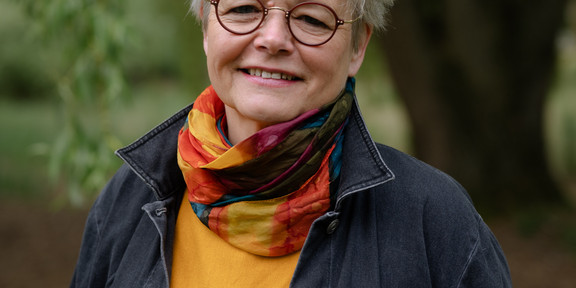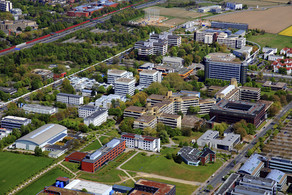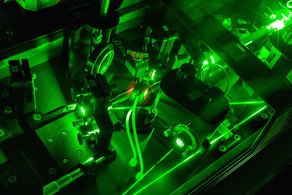"We want to go one step further in accessibility".
- TU News

Today, images and videos are central components of websites, teaching materials and social media. On "Global Accessibility Awareness Day", the worldwide day of action for digital accessibility on May 19, TU Dortmund University is therefore drawing attention to the importance of alternative texts for images and subtitles for videos. The Department of Disability and Studies (DoBuS) is offering short workshops on the implementation of alternative texts and subtitles on that day. DoBuS employee Dr. Anne Haage explains why the topic is important, how good alternative texts can be created, and how TU Dortmund University supports this.
Ms. Haage, on the occasion of the worldwide Day of Action for Digital Accessibility, DoBuS is drawing particular attention to the importance of alternative texts for images and subtitles for videos. Why are these two topics so important?
Dr. Anne Haage: Without meaningful descriptions of photos and graphics, blind and visually impaired people lack essential information. Only if there are alternative texts can a screen reader, i.e. reading software for blind people, reproduce this information. In the case of videos, subtitles are indispensable for deaf and hard-of-hearing people to understand. But they also help non-native speakers. And anyone who wants to use videos on the move or who needs to learn the correct spelling of technical terms will also benefit from them. We have also chosen the topics because they can be implemented relatively quickly. On May 19, we don't just want to raise awareness, we want to get active: Many TU members should participate and describe pictures that do not yet have an alternative text on their website or add subtitles to a teaching video for the next seminar session. On the day of action, we can take another step forward in terms of accessibility at TU Dortmund University.
What should you pay attention to when creating alternative texts?
Alternative texts are ideally entered directly when documents and web pages are created - for example in Word, PowerPoint, Moodle or Typo3. In this way, they are accessible from the start and you save yourself time-consuming rework. There are a few basic rules when formulating: In many cases, alternative texts can be kept short; it doesn't have to be a full sentence. If the picture is rather decorative, it can be described concisely, for example: "Professor at the lectern in the lecture hall". Descriptions of images in teaching or exam materials are more detailed. First there is general information to get a first impression of the illustration and the type of illustration. Then follows the short, technically precise description of the content with the details that are necessary to understand the subject matter. Finally, from a didactic point of view, one must look at the description: Is everything included that is necessary to solve the task, but is also nothing anticipated that already belongs to the solution?
What exactly are you offering on May 19?
On the day of action, we invite you to several short workshops. In 20 minutes, for example, we will explain the basic rules for alternative texts for pictures and graphics and raise awareness for the special challenges of teaching materials. Those interested can bring along an image for which they need a description. The second offer concerns automatic subtitles for educational videos: In also 20 minutes, the online tool Amberscript is presented, which the TU Dortmund has purchased brand new for this purpose. The workshop also provides tips for post-production.
About Global Accessibility Awareness Day (GAAD)
GAAD was founded in 2011 by Joe Devon and Jennison Asuncion. Since then, every third Thursday in May events have been held worldwide have been held around the world.



